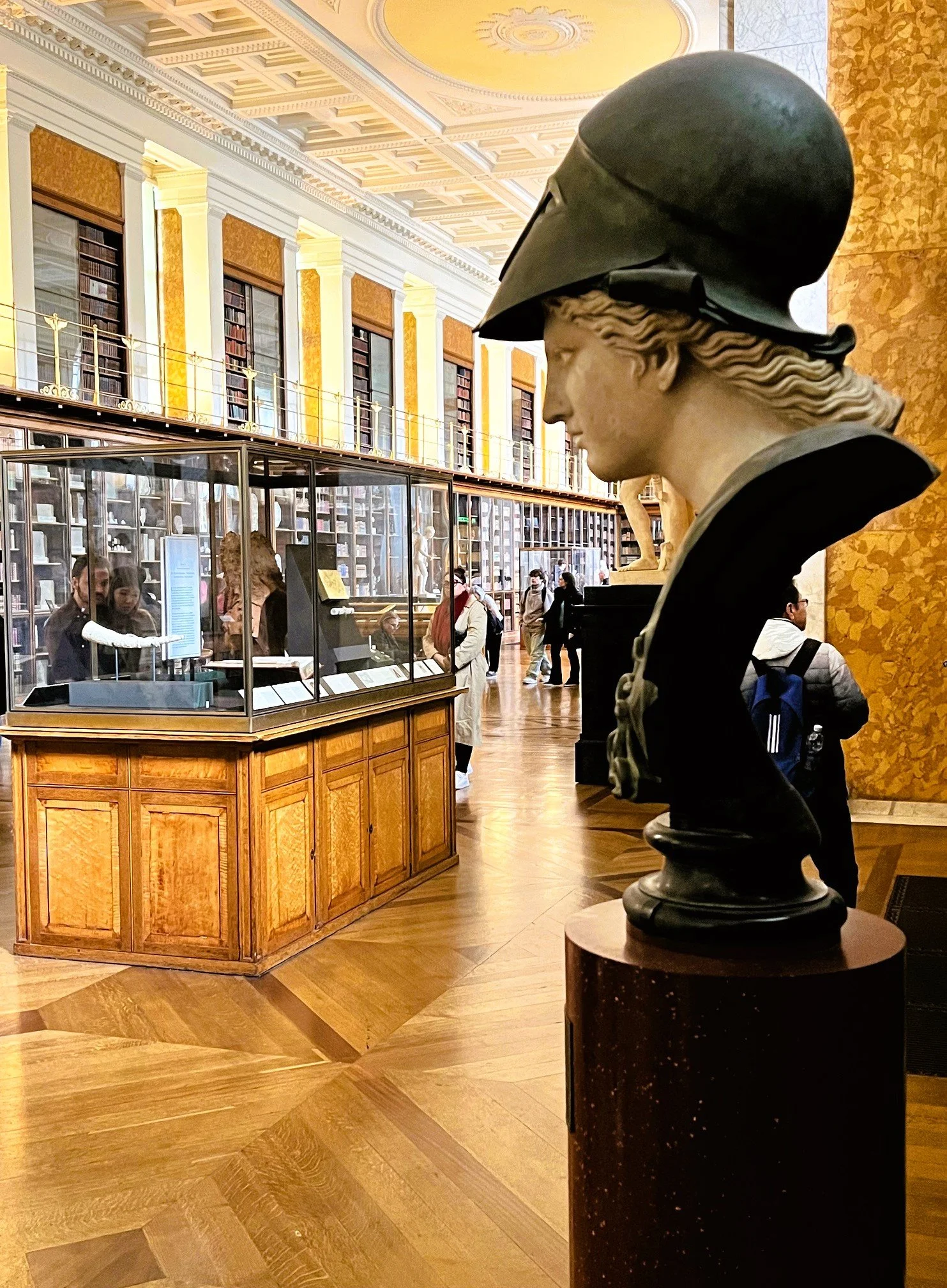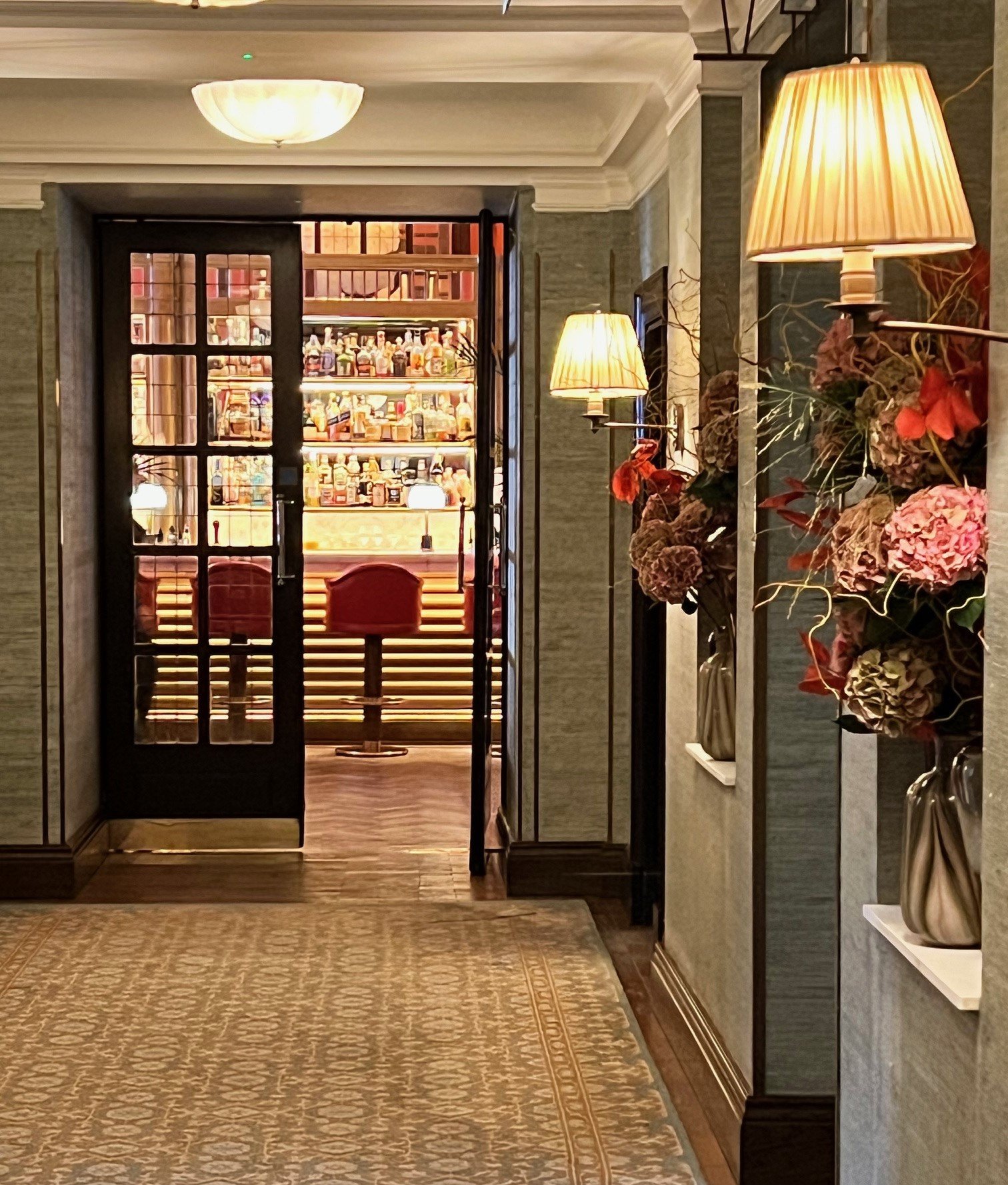Jonathan C. Lewis
Author and Artist
Hello, Bloomsbury
A fictional travelogue; four minutes to read.
Dear Travel Journal,
It’s just a matter of time now. The twisted, tortured paths of my life are turning towards a final journey. I’m dying. Not soon, but soon enough.
Travel is my curative for death’s hovering predictability.
Movement is life. One way--the only way—I know for dead certain that I am among the living.
Travel empowers me. I control where I go, when I go, what I do.
When I remember that I am on a tourist’s journey to death’s door, I pick hotels with front doors near the things that interest and please me. Of course, no hotel is close to everything, but then I’m not interested in everything.
In London, my hotel of choice is the Bloomsbury—inaugurated in 1932 by the Queen Mother. Coincidentally, it’s located in the Bloomsbury neighborhood.
The hotel’s most astonishing amenity is its de facto annex—two short blocks away—the admission-free British Museum. The museum is a mausoleum for antiquities and artifacts. The tombstones foreshadowing my impermanence.
After morning coffee and the London Times, it’s a ten-minute walk to Covent Garden. After passing by the Royal Opera House—famous to Americans from the opening scene in the musical My Fair Lady—I veer off to Cecil Court. Since the 17th Century, this passageway has housed antiquarian booksellers peddling first-editions, antique maps, old stamps, banknotes, coins and musty ephemera of every sort. As I age, the brittle, yellowing book pages look more and more familiar.
Nearby, the Freemasons Hall—headquarters of the United Grand Lodge of England and the Supreme Grand Chapter of Royal Arch Masons—is not your everyday tourist attraction. Freemasonry is a story of dying rules and reborn attitudes. While membership remains restricted to men, freemasonry is open to transgender individuals. A man can join up if he once walked the earth as a woman. Death and rebirth, Mason-style.
Also within easy walking distance of my hotel is London’s West End—famous for world-class theatre. The theatrical productions force feed me with thoughts about life and death, my aging body, my life’s purpose. I’m untangling a murder mystery. My own.
My mental photo book of travels—at my age, looking backwards is what I do—is page after page of selfies taken with the dead. Memorials, battle monuments, cemeteries. Bodies buried under church floors. Tombs of every size and shape. Pompeii. Egyptian pyramids. Gettysburg. Tree limbs used for lynching black Americans. Dachau and Auschwitz. Graveyards, marked and unmarked.
The tips of my fingers tingle with despair. My head hurts. My souvenir memories depress me. My labored gasping sounds desperate, labored, unsustainable.
British philosopher Alain de Botton crashes around inside my brandied head. “Man seems merely dust postponed.”
I order my third brandy and tell myself an old Woody Allen jest: “I'm not afraid of death. I just don't want to be there when it happens.” In the sybaritic safety of the Bloomsbury, I let deflection deny my mortality.
I stumble out of the lounge. I need sleep.
Tomorrow is soon enough to think about not traveling any more.




